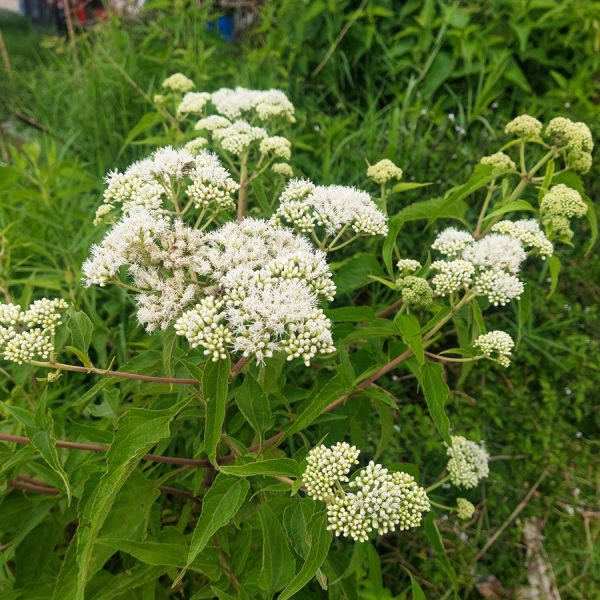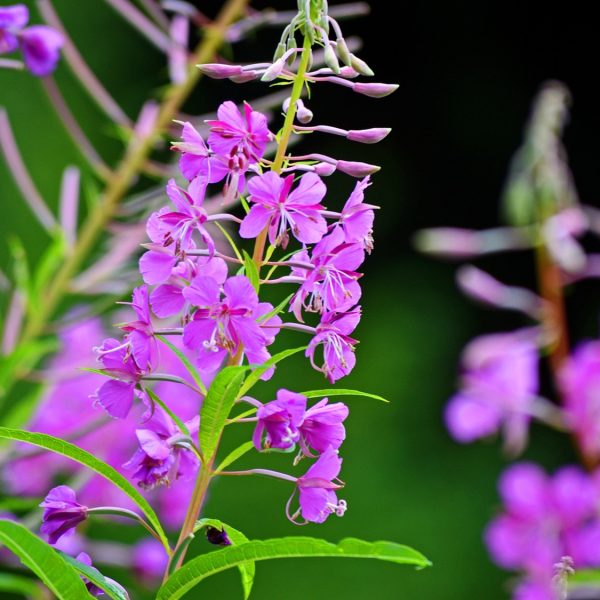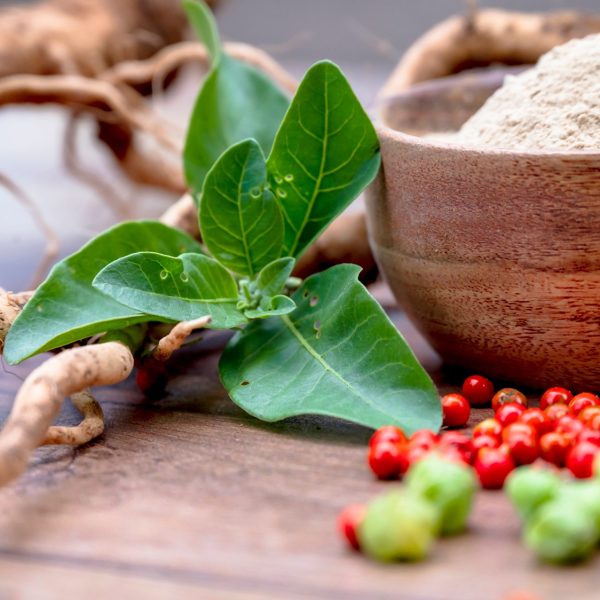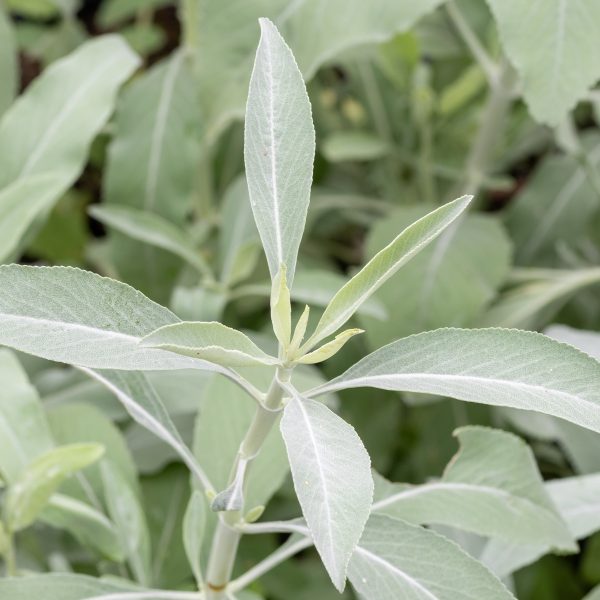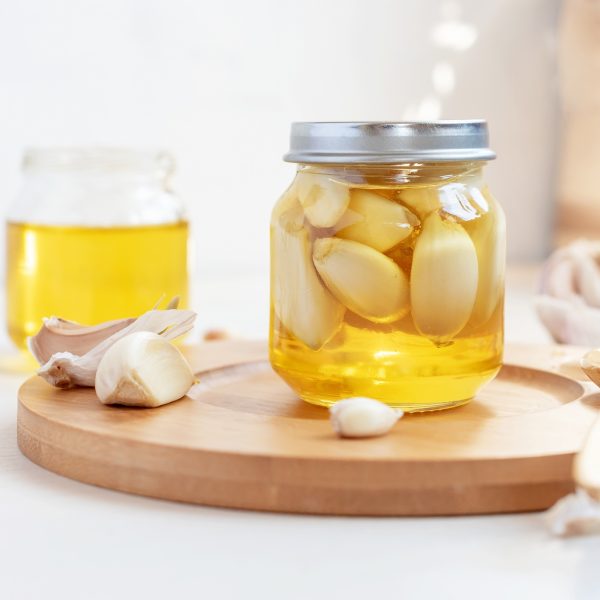
Jonas Brab reflects on discussions with Global Supplier Manager, Matt Richards on the need for partnership to support growers to overcome challenges imposed by commercial and environmental pressures.
Within the last few years, incidences of extreme weather events have become increasingly common (1). This affects all living beings across the world. Curious about how these effects have been impacting the herbal world, I spoke with Matt Richards, Global Supplier Manager at Organic Herb Trading. Since 2014, he has been working with suppliers, producers, growers and customers from all over the world and built relationships with the people, the plants and the land he has encountered.
Organic Herb Trading is a part of social and agricultural movement inspired by the global Organic movement, Soil Association, FairWild, and Fair for Life, amongst other associations striving to positively impact social and environmental wellbeing in the industry. These discussions are a reflection of some of the real-life challenges that growers and harvesters face, and subsequently ethically-motivated suppliers that engage in such an approach to combat these issues together.
Partnerships to support growers

For those who aspire to fairness and sustainability in the supply chain, the work is complex — building partnerships with different suppliers is unique to each supplier, just as growing any herb is unique to each herb and each environment. Understanding the requirements to provide assurance within different aspects, such as organic integrity, food safety, human rights and environmental responsibility and impact, requires time, a lot of planning, and knowledge of legislation, certification, principles and practices and about the growing conditions of a vast variety of plants. Yet, most crucially for his work is the foundation of a trusting partnership between supplier and buyer.
Things are constantly evolving, regulations, environmental risks and geopolitical changes all threaten to destabilise conditions for growing and supplying herbs. To be able to guarantee a fair price for the growers or harvesters, as well as minimally impact on the environment, collaboration and full transparency throughout the whole supply chain are essential — from grower or harvester to final consumer. This is not easy, and while it is not possible for suppliers to visit and talk to every farmer or collector, working to strategically maximise this form of partnership, in order to benefit everyone involved fairly, works towards good environmental practices and complies with the high-quality standards often requested by customers and buyers.
Not only does this relationship benefit the growers and farmers, but the companies buying the herbs and their customers too. Working in this way improves the reliability of the supply, offers consistency in pricing, and positively impacts the quality of the herbs received — owing to how working in partnership permits the suggestion and adoption of practices in herb growing or processing that lead to improved herb quality.
Some relationships that Matt has established are with farmers who he has been working with for many years. Other times, he is more involved with those representing farmer collectives or the supply business. Through in-person visits, suppliers can foster meaningful connections and build transparent value networks throughout the industry, across the globe.
In instances where forming direct partnerships are, for whatever reason, not possible, the next best thing is the assurance provided by third-party verification, certifications such as Organic, FairWild, and Fair for Life. These ensure that all parties are subscribing to and abiding by the same principles. Though these offer no true substitute to partnership, they offer a recognisable means to protect the land, support growers and customers too — as a simple means for herbal business owners, herbalists or herbal tea drinkers to ensure they are supporting herb growing communities through their purchasing choices.
Understanding one another, understanding the context

Sometimes, when new potential suppliers are visited, the meeting may raise issues that wouldn’t have come to light in any other way. Matt shared one example, from when he was visiting Vietnam as part of a group looking at sources for ginger and turmeric. One such farm they visited was visibly in its infancy, with obvious indications from the surrounding land that it had been created by cutting down old grove forest. While this may produce very fertile soil for growing crops, deforestation is far from sustainable practice and is against organic regulation. Yet, whilst recognising the violation of principles, Matt also acknowledges the nuances and challenges that allow these situations to arise, such as social and economic pressures that lead to the pursuit of unsustainable practices.
As buyers, coming from wealthier countries, having an awareness of the underlying power imbalances and the complex colonial history is essential to handle relations with care and understanding. While spices and herbs were globally traded long before the beginning of colonialism, the pursuit of spices played a crucial role within the colonial and extractive expansion of the major European nations. The context is still relevant, and the impact of colonial history is still palpable.
While colonial forces may have left, those that have taken control of these trades may have taken on colonial ways of engaging with workers, growers and collectors and extractive mindsets are very much still at work today. To take the values of fairness and equality seriously, one has to be acutely aware of the local social contexts, which in turn relies on strong relationships between buyers and suppliers.
Though, even in long-established relationships, things can go wrong at either end, and in those moments, supportive partnerships that foster accountability are especially crucial to find solutions together. In partnerships, prices are not continuously pushed down in pursuit of ever-cheaper goods at the expense of those growing or harvesting herbs and growers and collectors can voice their challenges and feelings of uncertainty about the future.
Climate impact

Weather patterns are changing and the seasons are shifting, which is apparent in the UK with these changes affecting the reliability of crop harvests. So, what are the current issues that people around the world are facing when it comes to growing and supplying organic herbs?
One major challenge is the increasing frequency of extreme weather events. Farmers all over the world report feeling more and more unsure about what the weather will bring on a year-to-year basis. India, where many Ayurvedic herbs are sourced, is used to monsoon season — three months of heavy rainfall. In recent years this has become extreme, with flooding becoming an increasingly frequent occurrence, with a threefold rise in the incidence of extreme rain events in central India between 1950 and 2012 (2). In 2023, flooding took whole crops of ginger away from some regions, leaving those plants left in the ground spoiled by rot due to the higher humidity and moisture presence.
But research suggests that other climate changes, already detectable in India, impact these crops. Over the last century the annual temperature has risen by 0.56C, which can stress plants, but also impacts water availability in the dry and hot times of the year. Increased flooding has led to increased soil erosion and, therefore, affects soil fertility. Higher precipitation in northeastern states has also led to increased pathogens (3). Peru is another country that commonly grows a lot of ginger. In recent years, there has been an observed increase in outbreaks of Ralstonia solanacearum, a bacterium that causes wilt in ginger and damages ginger crops.
This is thought to be due to slightly warmer, damper conditions. In Vietnam, an important source of cassia and tea, Matt saw remote villages cut off, factories flooded, and roads and woods lost. All of this is having an impact on local communities, their ability to live with the land and off the land, and of course the global supply chains of these herbs.
The more long-term changes of weather patterns can also cause unpredictable changes for growers and collectors. Harvesting windows are changing everywhere. Elderflower harvest is becoming increasingly difficult in Eastern Europe as weather patterns change and the picking season becomes increasingly rainy, making picking and drying more difficult. Sarah Weston, who has been growing herbs for Organic Herb Trading in Somerset, UK for 15 years, reports that the harvest window for roots have changed as well.
Ideally roots are harvested, when all aerial parts of the plant have died back, but milder winters have meant that plants keep on producing foliage deep into winter, pushing back the harvest window for these crops. Additionally, rot can be more of an issue with warmer winters and impact root harvest as well.
Weather changes are already causing changes in the growth patterns of plants, pathogens and extreme weather conditions can make the outcome of a year’s work very unpredictable. While the movement of political orientation away from fossil fuel heavy industries and towards renewable and sustainable industries are still being hampered by fear of economic impacts in the future, in some areas of the world, the impact of climate change on people’s lives today is already too damaging and extends beyond fear of future economic shortcomings.
Pesticide contamination

Another area in which growers and suppliers are struggling are the ever-increasing challenges brought by contamination of crops with pesticides. As discussed in Ecological farming of medicinal herbs, more and more pesticide residues are being found on wild harvested as well as commercially grown herbs. This can happen, even if farmers implement organic practices. The reason for this is non-point contamination, or in other words, contamination that happens through indirect exposure. One study looking at several different pesticides all over the world found that 19 different pesticides could be detected in the arctic, concluding that these pesticides are able to travel over long distances through the atmosphere (4).
Tests in Egypt revealed that dust carried over the land by sandstorms can contain high levels of pesticides, which can pose a threat to organic growers. Usually, contamination that is high enough to be of concern is more likely to be caused by agriculturally managed land close by, where the herbs are being harvested from. According to an article by the Guardian, pesticide use has almost doubled between 1990 and 2022 and more land is being used for agricultural use (5). All of these factors make it increasingly difficult to keep crops pesticide-free.
But the number of different pesticides available has also significantly increased over time. Due to the great variety of different pesticides, there is an equally abundant number of tests to be performed on products that are being analysed for pesticide content. Some test hundreds of different pesticides but it is usually impossible to test for every single one. Furthermore, one batch of a herb may be tested for some pesticides by one lab, and then for others in another country by a different lab. If a crop is found to be contaminated with pesticides, it loses its organic status, which makes sense of course from a consumer point of view.
However, this can be a very hard reality for growers, who may have been rigorously following organic regulations and relying on the higher price they receive for organic products, since the production itself tends to be more labour intensive. But if the product loses its organic status, then of course, it also loses its value, and this loss can often sit with the farmers or collectors. Farmer groups, growers, collectors, they all need to gain some assurance and support to be able to confidently supply organic, high-quality herbs sustainably.
Transparency is key

Without the transparency throughout the supply chain, it is impossible to build good relationships and support one another with these challenges. When problems such as contamination turn up with one of Matt’s core partners, there is a collaborative process, to try and understand the issue and resolve it. This level of partnership depends on a deep understanding of the needs of everyone involved as well as the constricting parameters to meet those. This in turn requires understanding each other’s values, commitments and relations. This kind of relationship and the resulting trust is intrinsic to the work of responsible suppliers.
Collaborative work is also going on in the industry on a wider scale, with working groups that form part of the Sustainable Herbs Initiative (SHI), led by Ann Armbrecht. These groups consist of growers, suppliers and producers of different sizes and different markets, who, together, work on understanding and resolving some of the presenting challenges. This collaboration, the shared values as well as a growing awareness for these matters by customers, gives hope that things can change.
The members of SHI strive to create alternative paths to the status quo, where instead of making short-sighted, competitively and economically driven decisions, their work is guided by the needs of the land, plants and people. Perhaps instead, a new path can be created, with new paradigms of collaboration, trust, accountability and transparency as we face the challenges of our times.
As individual consumers, practitioners or patients, we become a part of this web of global trade of herbs. How can we make sure we partake in such a way that we support this work, the land and the communities of people growing and harvesting the herbs we use?
By asking our suppliers about their sources and their commitment to a sustainable and fair trade, especially if we are aware that the herb we are wanting to buy has issues within its’s supply chain. With one simple question, where exactly are these herbs coming from? we can show suppliers that their customers care about the answer — a start to encouraging a shift in their approach to sourcing that puts plants and people at the centre.
References
- Rodell, M., Li, B. 2023 Changing intensity of hydroclimatic extreme events revealed by GRACE and GRACE-FO.
- Roxy, M.K., Ghosh, S., Pathak, A. et al. A threefold rise in widespread extreme rain events over central India. Nat Commun 8, 708 (2017). https://doi.org/10.1038/s41467-017-00744-9
- Kumar, R. & Kumar, S. & Kanagaraj, Mohanraj & Palanisamy, Anbarasan. (2025). Ginger cultivation in India: impact of climate change and sustainability strategies – a potential review. Cogent Food & Agriculture. 11. 2446653. https://doi.org/10.1080/23311932.2024.2446653
- Mayer et al. 2024 Widespread Pesticide Distribution in the European Atmosphere Questions their Degradability in Air. Environmental Science & Technology 2024 58 (7), 3342-3352. https://doi.org/10.1021/acs.est.3c08488
- Nelsen, A. 2022. Pesticide use around world almost doubles since 1990, report finds. Accessed 29/05/2025

